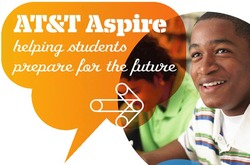It’s Never Too Late to Accelerate Your Ed-Tech Startup
Guest post by Swaroop Raju, co-founder of eduCanon
We launched eduCanon in September of 2013. While eduCanon hasn’t been around for decades, we have been fortunate enough to pass milestones that put us beyond the position most people envision as an accelerator-stage startup. We now support over one million users and have proven a sustainable revenue model, selling to some of the top public, private, and charter schools globally.
That being said, we are still a startup, which means we’re a business that hasn’t yet realized its full ambitions. We have shown that teachers see eduCanon’s potential to enhance the videos in their blended or flipped classrooms, but we want to reach more educators. So even though eduCanon has been around for a while, we chose to do two accelerators with different specialties concurrently: AT&T Aspire Accelerator and Stanford University’s StartX.
AT&T Aspire Program
Every company participating in the AT&T Aspire Accelerator works in education and tackles its own distinct challenges, from K-12 to higher education. All of the companies in the cohort (they chose five out of 384 applicants) were post product-launch and had at least partially proven themselves through traction, revenue, and some level of prior funding. A significant benefit of participation in the Aspire program is the support received from the AT&T network. Companies get access to AT&T-sponsored education conferences, mentors with expertise across different verticals, and dedicated hours from a firm that focuses on user interface and user experience to improve your platform. Beyond this, being backed by the AT&T social impact fund brings a legitimacy to your venture during conversations with schools, teachers, and potential investors.
Thanks largely to the mentorship and resources provided by AT&T we were able to double our user base during our time with the program, from 50,000 to 100,000 registered teachers.
StartX
StartX has a unique value proposition over other accelerators: it takes zero equity from its portfolio companies. Because StartX functions as a non-profit and is backed by Stanford University, it is able to provide $100,000 in value to each of its start-ups and a commitment to invest 10 percent of a $500,000-plus investment round.
The program prides itself on the strong alumni community it has created over the years. The thing that impressed us most about StartX was that it was truly stage agnostic. In our batch there were companies with barely functioning prototypes alongside companies the size of Ggfycat (which gets over 50 million visitors each month). Beyond the diversity of company stages, StartX attracts companies from virtually every sector. During bi-weekly meetings with other companies within our cohort, participants got exposed to ideas and growth strategies largely unused in their own sector.
As I mentioned earlier in this post, I originally envisioned accelerators as only suited for companies in the idea stage, looking for advice on product launch and initial traction. The reality, however, is that there are so many different stages to the start-up journey and therefore so many different stages where you can benefit from the advice and resources of a strong network. For us, the StartX community and the resources afforded to us by AT&T have been tremendously helpful and positioned us to tackle the next stage for eduCanon.
- Ed-Tech Is Important but People Are a Key Ingredient to Startup Success
- Four Reasons Ed-Tech Tools Must Work With Teacher Systems
- When is an Educational App Classroom Worthy?
- The Top 10 Ed-Tech Tools Suggested By Teacher Experts
For more information follow @educanon123 on Twitter.


